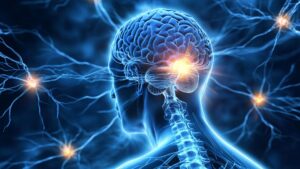


Chronic pain is one of the most widespread and debilitating health challenges of our time. Unlike acute pain, which serves as a temporary warning signal, chronic pain persists for months or even years – reshaping daily life, limiting mobility, and taking a heavy toll on mental and emotional well-being. For many people, it becomes the…

It’s a common scenario: you wake up with a dull ache that quickly turns into sharp pain. You feel it in your neck, but you also feel it deep in your shoulder and even down toward your elbow. You might start wondering if you pulled a muscle at the gym or if something is wrong…

A few things make people with multiple sclerosis feel more anxious than when their symptoms suddenly intensify or return. A leg feels weaker. Vision becomes blurry. Fatigue spikes out of nowhere. The immediate fear? It’s a relapse. Yet many of these episodes turn out not to be a true flare at all. The confusion between…

If you live with chronic head pain, you might feel like a human barometer. Many people claim they can “feel” a storm coming or sense a cold front before it even arrives. It turns out this isn’t just an old myth – there’s a very real link between weather and migraine that affects millions of…
View Topics